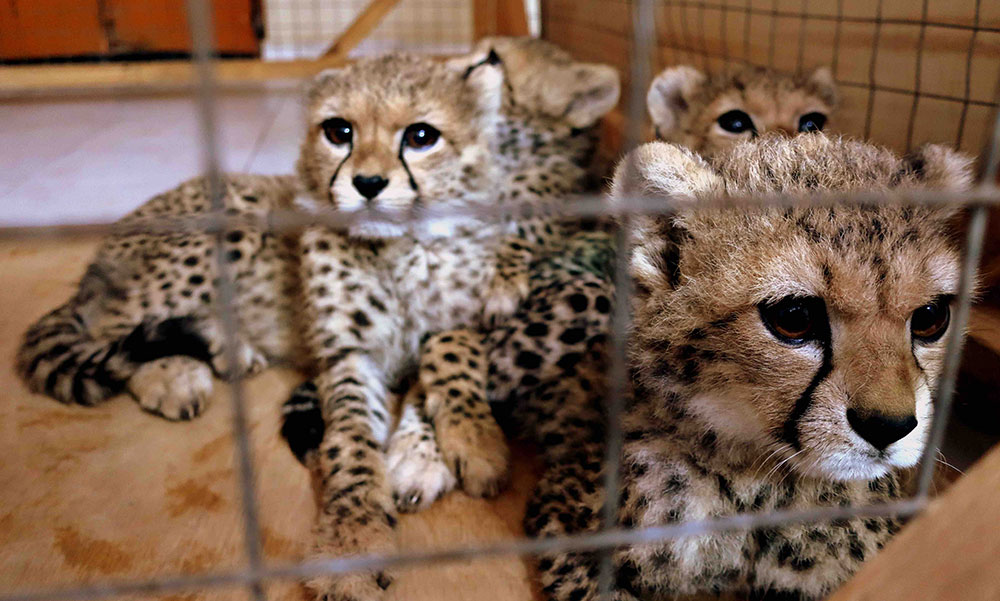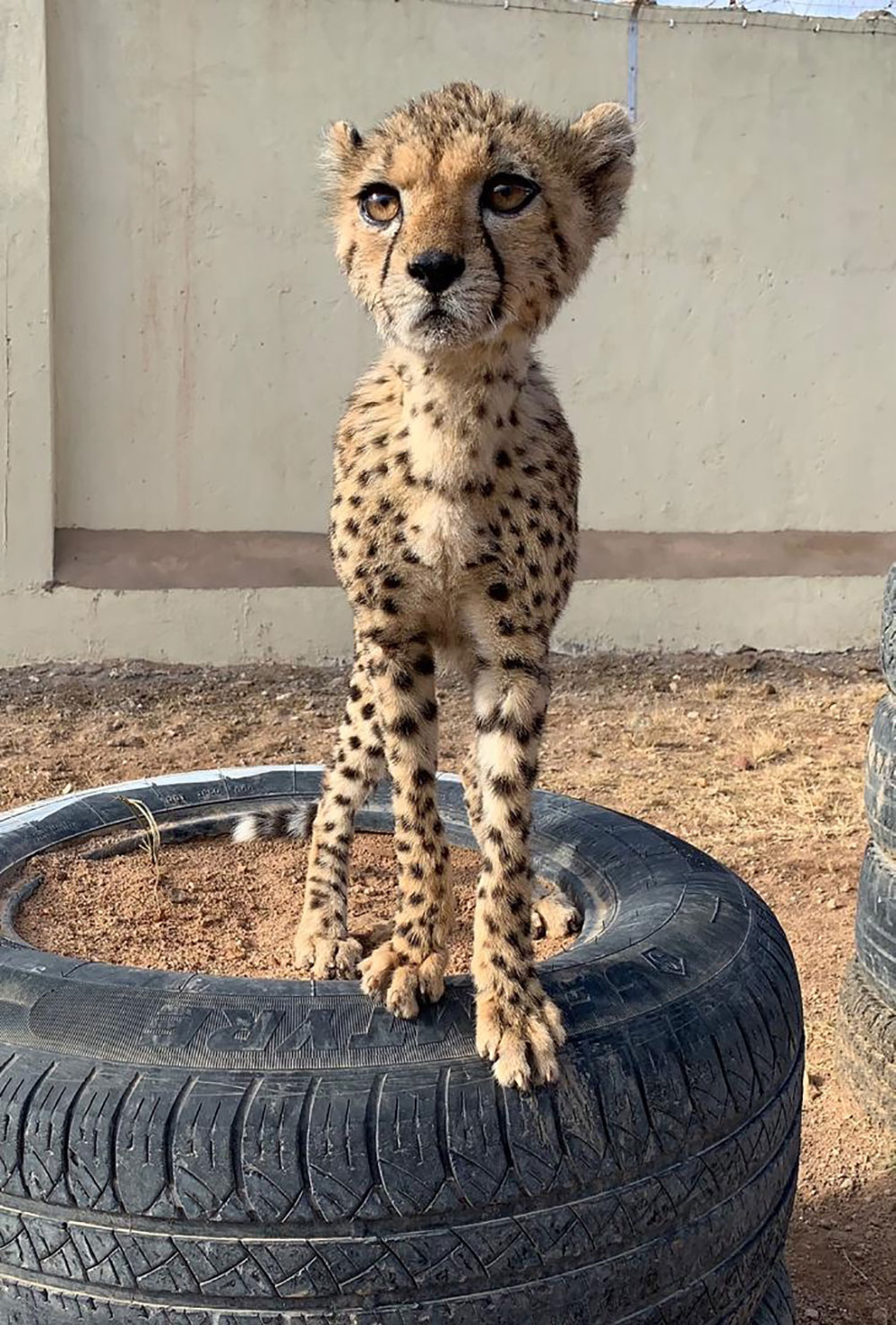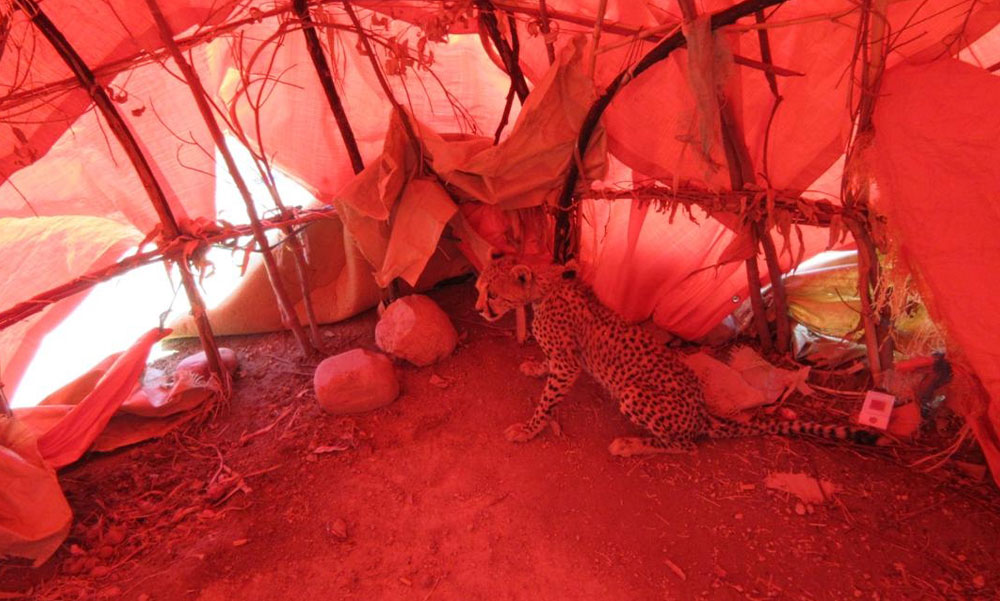Demand for exotic pets and human-wildlife conflict drive illegal trade in cheetah cubs and regional cooperation
-

- by CCF Staff September 16, 2021

[HARGEISA, Somaliland – 16 September 2021] Cheetah Conservation Fund (CCF) research indicates 300 cheetah cubs were poached from the landscape in the Horn of Africa each year between 2010 and 2020. In response, CCF has joined with International Fund for Animal Welfare (IFAW) and Legal Atlas to disrupt the poaching and trafficking of cheetahs between the Horn of Africa and Middle East-North Africa regions through a project known by its acronym, LICIT — Legal Intelligence/Cheetah Illicit Trade. From 19 to 23 September, IFAW, Legal Atlas and CCF will conduct a five-day training course in Hargeisa for representatives of the Somaliland government involved in law enforcement and the prosecution of wildlife crimes. With the ultimate aim of reducing poaching and illegal trade in cheetah cubs, the participants will increase their knowledge of Somaliland environmental and wildlife conservation laws, how to properly handle confiscated cubs, and how to carry out efficient criminal investigations involving wildlife.
Made possible by a grant from the UK Government through its Illegal Wildlife Trade Challenge Fund, LICIT seeks to build capacity with law enforcement agencies, strengthen legal frameworks and create regional networks between four legal jurisdictions – Ethiopia, Somaliland, Somalia and Yemen – identified by CCF as being the biggest stakeholders in this fight. As a source and transit country with almost 800 kilometres of coastline facing Yemen, Somaliland has long been at the centre of the illegal cheetah cub trade.
“The work we are undertaking with LICIT to improve our laws and establish a national unit to conduct counter-trafficking activities is a major step forward in our decade-long fight against illegal wildlife trade here in Somaliland,” said Minister Shukri H. Ismail of the Ministry of Environment and Rural Development (MoERD). “After the arrest of Cabdiraxmaan Yusuf Mahdi, better known as Abdi Xayawaan (Abdi Animals) in October 2020, we have not intercepted any illegal cub shipments in Somaliland. We hope this lull becomes permanent.”
With fewer than 7,500 cheetahs left in the wild, this level of poaching is devastating to biodiversity and threatens the species in the Horn of Africa with local extinction within 10 years.
“Supporting inter-regional collaboration in law enforcement is crucial to successfully counter wildlife trafficking,” said Matt Morley, Director of Wildlife Crime for IFAW. “We have been hosting Detecting Illegal Species Through Prevention Trainings (DISRUPT) across Africa and the Middle East for years, and with LICIT, we are sharing the programming we have developed through our work in these other jurisdictions.”
Legal Atlas Director James Wingard adds, “Consistent application of wildlife laws is one of LICIT’s goals. We have therefore compiled legal frameworks for each of the four jurisdictions. Doing so makes it easier to spot gaps in legislation. Then we can assist the respective governments in strengthening their laws by revising them or by creating new ones.”
The illegal trade in cheetahs is mainly driven by demand for exotic pets in the Middle East, but also by extreme poverty in source countries. Human-wildlife conflict makes coexistence with these predators difficult, and the impact of climate change on agriculture and livelihoods further exacerbates the situation.
“Even after we stop the illegal trade, our work in Somaliland and the Horn of Africa is just beginning,” said Dr Laurie Marker, Founder and Executive Director of CCF. “We are learning from confiscation events where wild cheetah populations may exist, and we are meeting the people who live with them. In these areas, the confluence of drought, famine, extreme poverty, lack of opportunity, lack of education, lack of awareness of the law, and conflict with farmers creates a complex web of issues that must be addressed to save the species. We are grateful for the LICIT project, which is enabling us to take giant strides forward in this fight.”
# # #
MEDIA CONTACTS:
Susan Yannetti (CCF)
+1 202 716 7756
Jacqueline Nyagah (IFAW)
+254 722 607 640
EDITOR’S NOTES:
- Cheetah cubs in the Horn of Africa are often taken from the landscape by rural farmers in retaliation for livestock predation blamed on cheetah mothers. Sometimes cubs are sold as compensation for lost goats and sheep, while other times they are held in captivity for extended periods by community members seeking to protect their livestock from predation. Many are stolen by professional traffickers to supply illegal pet markets on the Arabian Peninsula. Whatever the motivation, an estimated three out of four cubs poached in this region die within two years. Most deaths are caused by combinations of malnutrition, dehydration and disease or health conditions due to improperly formed immune systems, because cubs were removed from their mothers too early in life and did not receive sufficient ongoing care.
- Last month, CCF and MoERD, announced a ten-month period without any confiscation or interception events involving cheetah cubs. This ended on 6 September with the arrival of four young cubs at CCF’s Safe House facilities in Hargeisa. The baby cubs, estimated to be between 2.5 to 3.5-weeks-old, were removed from the landscape by villagers near Las Anod after accusing the mother cheetah of preying on the community’s goats. Fortunately, the village elders knew that taking the cubs was an illegal act. They contacted the MoERD Regional Coordinator for Sool and arranged for the cubs to be voluntarily surrendered. Though these happenings indicate that significant progress is being made in combating illegal trade and poaching, cheetahs are still Africa’s most endangered big cat, and they face an uncertain future.
- This national training in Somaliland will be followed by another training in November for representatives from the governments of Ethiopia, Somalia and Yemen in the Somali Regional State of Jijiga. These two trainings will lay the groundwork for a third and combined regional training designed to foster cooperation between the four legal jurisdictions and encourage uniform application of laws.


About Cheetah Conservation Fund
Cheetah Conservation Fund (CCF) is the global leader in research and conservation of cheetahs and dedicated to saving the cheetah in the wild. Founded in 1990, CCF is an international non-profit organisation headquartered in Otjiwarongo, Namibia, the “Cheetah Capital of the World”, with a field base in Hargeisa, Somaliland. CCF takes a holistic approach to conservation, recognising that to help the species, we first must help the people who live alongside wildlife. CCF’s strategies are built on three pillars: research, education and conservation. CCF marked its 30th anniversary in 2020, making it the longest running and most successful conservation organisation for cheetahs.
About International Fund for Animal Welfare
The International Fund for Animal Welfare (IFAW) is a global non-profit helping animals and people thrive together. We are experts and everyday people, working across seas, oceans, and in more than 40 countries around the world. We rescue, rehabilitate, and release animals, and we restore and protect their natural habitats. The problems we’re up against are urgent and complicated. To solve them, we match fresh thinking with bold action. We partner with local communities, governments, non-governmental organizations, and businesses. Together, we pioneer new and innovative ways to help all species flourish. See how at www.ifaw.org.
About Legal Atlas
Legal Atlas is a legal intelligence firm that provides expertise in the compilation, assessment and harmonization of legal frameworks, as well as consulting and training in implementation, enforcement and prosecution. Our work is supported by an award-winning legal intelligence platform that – through a variety of digital technologies – aggregates, maps, compares, and visually renders national and international laws. Visit our platform at www.legal-atlas.net.
About Ministry of Environment and Rural Development, Republic of Somaliland
The Ministry of Environment and Rural Development (MoERD) mandate is to conserve, protect and manage national development of natural resources and the environment for the benefit of Somaliland people. MoERD promotes the pastoral sector through sustainable development aimed at the eradication of poverty and improving living standards while ensuring that a protected and conserved environment will be available for future generations. For more information about our work, please visit https://moerd.govsomaliland.org/.
Related Reading

